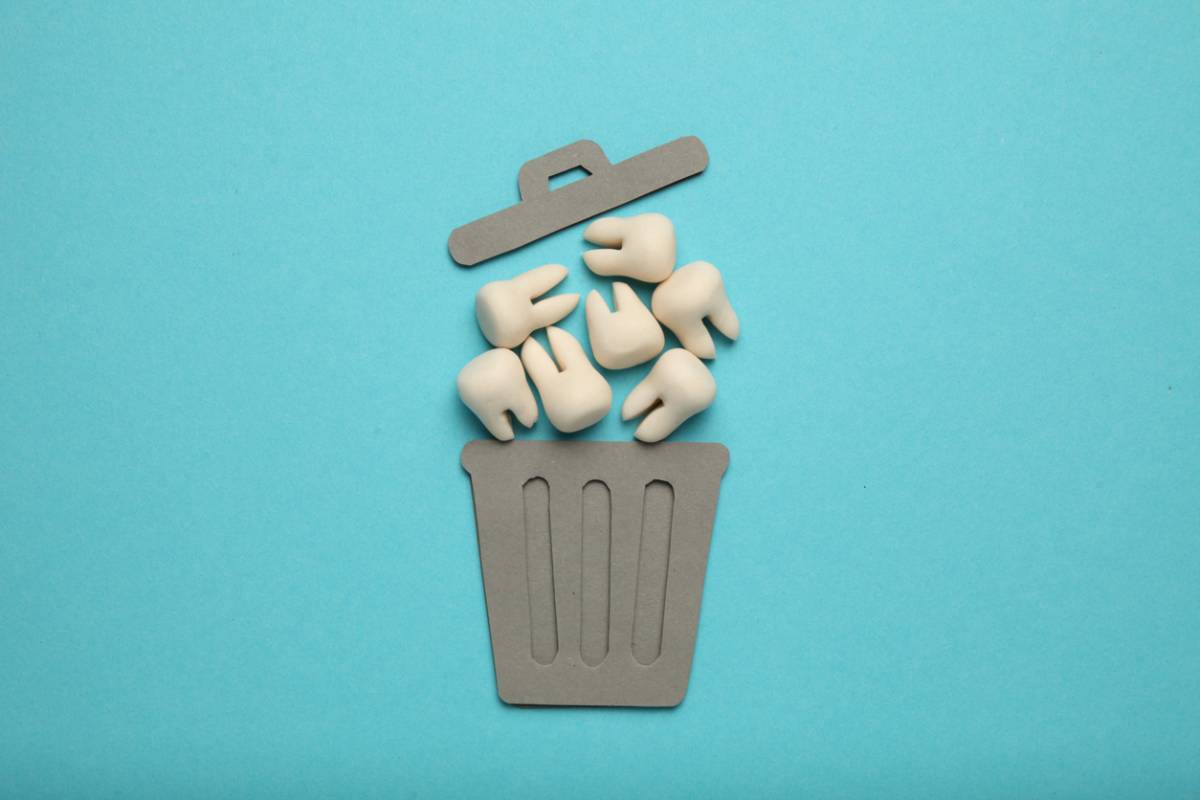Gum disease is a serious infection that can lead to other harmful dental issues. Also referred to as periodontitis, gum disease damages the soft tissue in your gums. If left untreated, it can impact the bones in your jaw that support your teeth. You may wonder, does gum disease cause tooth loss? Below you will find information on the initial signs of gum disease, the impact it can have on your overall health, and treatment options.
Symptoms of Gum Disease
If left untreated, gum disease can have a major impact on your dental and overall health. If you experience any of the following symptoms, contact a dental professional as soon as possible.
- Receding gums (this often makes your teeth look abnormally long)
- Gums that are swollen, puffy, and/or red
- Gums that are tender or bleed easily
- Bad breath
- Tooth loss or teeth that feel loose
- Pain when chewing
- New spaces between your teeth
- Pus coming from the area between your teeth and gums
- Prevalent blood when you brush or floss
Does Gum Disease Cause Tooth Loss?
Gum disease begins as gingivitis as it a common and mild form of the condition. Gingivitis often causes irritation, redness, and swelling in the portion of your gums right around your teeth. Gingivitis can be treated by a dentist in Chino Hills. In addition to a professional cleaning, you also need to stay consistent with your daily oral care routine and eat a healthy and balanced diet free from excess sugar.
Untreated gingivitis turns into periodontitis which can be extremely harmful to your oral health. Gum disease deepens the pockets of your gums, in addition to eating away at your jaw. This often results in your teeth loosening and eventually falling out. Tooth loss, severe gum damage, and long-term overall health issues are major risks associated with untreated gum disease. Research has shown that dental issues such as gum disease can have a major impact on your cardiovascular health. Gum disease is a serious issue that requires prompt treatment from an experienced dental professional.
Gum Disease Treatment
If you are concerned that you may have the early signs of gum disease, periodontal disease treatment in Chino Hills can help get your oral health back on track. Depending on the status of your gum disease, there are a number of treatment options. Some of the non-surgical treatment options include a professional dental cleaning or a root scaling and planing. A professional dental cleaning is often referred to as a routine cleaning. This may be effective if you are in the earliest stages. Root scaling and planing, also referred to as an advanced cleaning, is used when gum disease is more advanced. These types of non-surgical treatment options, in combination with a consistent daily oral care routine, can help treat your gum disease.
If your gum disease is more advanced, there are a number of surgical treatment options. Some of the treatments include flap surgery (or, “pocket reduction surgery”), bone grafts, soft tissue grafts, guided tissue regeneration, and bone surgery. The type of treatment that is right for you depends on how far your gum disease has progressed. It is important to set up a consultation with a dentist at the earliest signs of gum disease to reduce the amount of damage.
Caring for Your Oral Health Post-Treatment
Your dentist will give you instructions on how to care for your teeth and gums after treatment. However, you should brush your teeth at least twice a day for two minutes with a soft-bristled toothbrush. It is best to brush after every meal (and drink outside of water), but if you can’t brush you should at least rinse with water or mouthwash. In addition to brushing, you should also floss at least once a day. Talk with your dentist about when and how often you should go to the dentist to ensure your gum disease is effectively managed.

